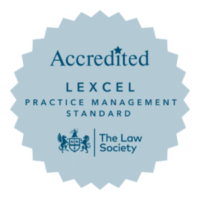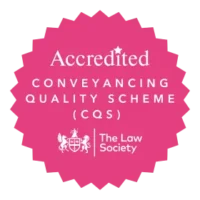Tax Planning: Reviewing my Income Tax position – is that really necessary?
18th Sep 2024
Around the end of the financial year in 2024, HM Revenue and Customs issued Notices to File Self-Assessment Tax Returns and many individuals were to receive information to assist in completing that Return including documents such as P60 Certificates, Interest Certificates on bank accounts held and Consolidated Tax Certificates on Investment Portfolios.
However, in anticipation of 2025, if you are one of the many individuals who does not receive a Tax Return for completion have you automatically assumed that you do not need to do anything or have you stopped to consider whether your personal tax position is correct? If your tax is usually collected under PAYE, have you checked to ensure that the correct amount of tax is being deducted? Have you started to receive a new source of taxable income and if so, how does this effect your tax position and reporting requirements?
You may be one of an increasing number of people who has previously been issued with an annual Self-Assessment Tax Return but received a letter from HMRC advising you that you no longer need to file a tax return. If this is the case have you taken steps to check your personal tax position for the tax year concerned, rather than automatically taking this at face value?
Why do I need to review my personal tax position if I do not receive a Tax Return?
With increasing interest rates and frozen or falling allowances we would recommend that this is a very good time to take steps to review your tax position, especially if you have not reviewed this for some time.
The personal allowance has been frozen at £12,570. However, if your total income exceeds £100,000, please be aware that your personal allowance will start to taper away by £1 for every £2 that your adjusted net income is over £100,000.
If you are a basic rate taxpayer, you can receive interest of up to £1,000 before paying tax on this. This reduces to £500 if you are a higher rate taxpayer. Taxpayers with income, after their personal allowance, in excess of the higher rate threshold (currently £125,140) will not normally be entitled to a savings allowance and so will be liable to pay tax on all savings interest earned outside of an ISA.
It is also worth noting that for the tax year to 5th April 2024, you could receive dividends of up to £1,000 before paying tax on these but from 6th April 2024 this will be reduced to £500, meaning that dividends received in excess of that amount will be taxable for all taxpayers..
Furthermore, the basic rate threshold has remained the same for several tax years. If, for example, your income has been close to the basic rate threshold, an increase to your investment income could now tip you into the higher tax threshold resulting in more tax payable.
There are also years in which a one-off event may occur, such as a chargeable event gain on the surrender of an investment bond. If such a gain arises, depending upon the policy, your circumstances and the figures involved, this may result in more tax payable, and you should arrange to check your tax position accordingly.
If I have a tax liability, does that mean that I will have to report this on a Tax Return?
Not necessarily. HMRC has an online tool available to assist taxpayers in deciding whether or not they require a Self-Assessment Tax Return. It is important to remember that the onus is on the taxpayer to register for Self-Assessment where applicable.
What happens if I have tax to pay but do not come within the criteria for paying under Self-Assessment?
HMRC’s advice is to contact them with details. HMRC should then make an adjustment in your PAYE code to collect any tax due on your investment income. Where this isn’t possible HMRC will issue a Simple Assessment to collect the tax due.
What happens if I do not report a tax liability to HMRC?
By inadvertently failing to declare a liability to HMRC you could potentially incur interest and penalties for failing to pay tax owed on investment returns.
How we help to simplify tax issues
We provide a bespoke tax advice and planning service with complete cost transparency from our accredited Tax team. To find out more, or to book an appointment to discuss your 2025 tax self assessments, or any other tax planning matter, contact us via our website, call us on 01761 414 646 or send us an email to enquiries@th-law.co.uk. One of our friendly team will be in touch.
Related news
Articles you may find useful
Like this article? Sign up for our regular newsletters






